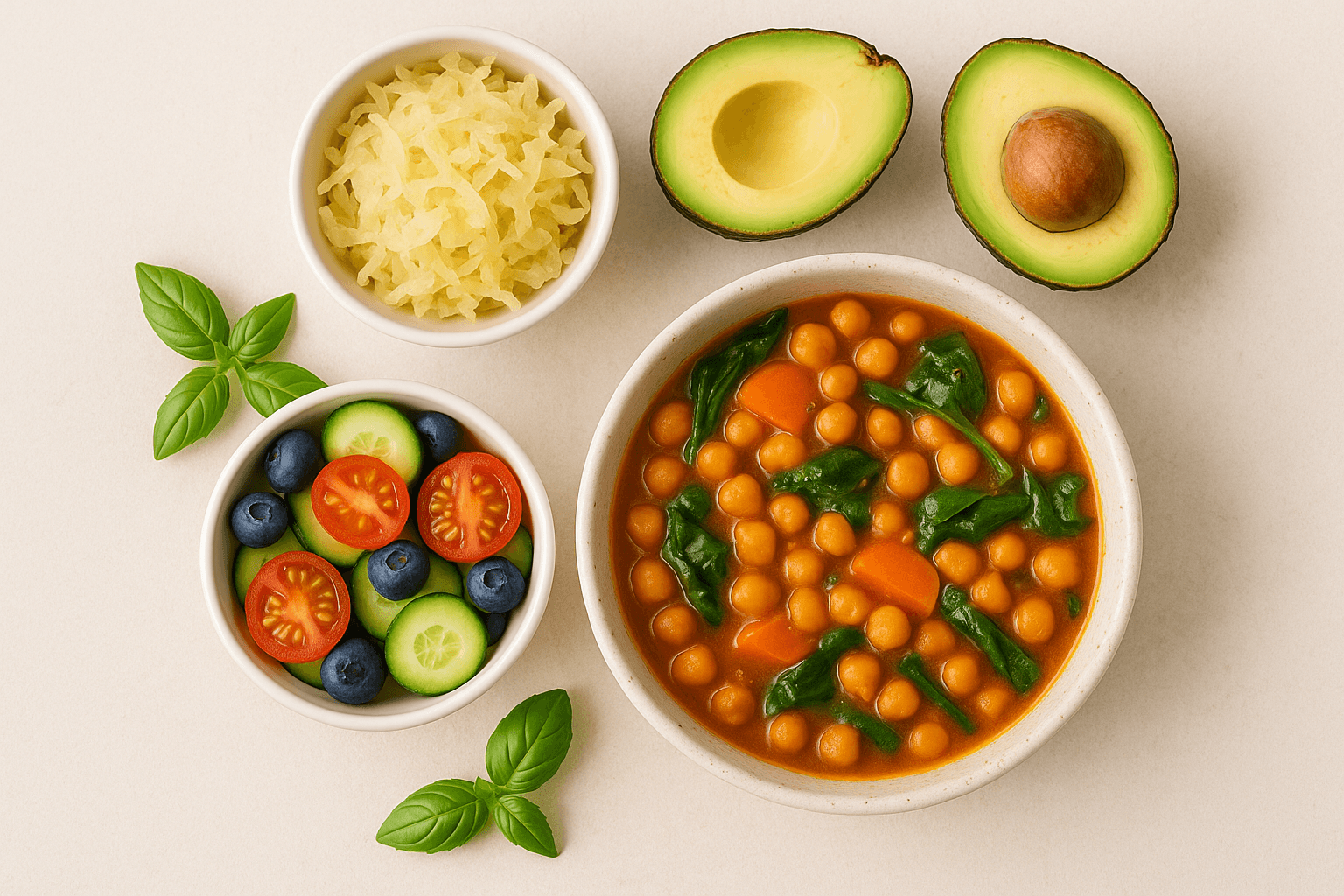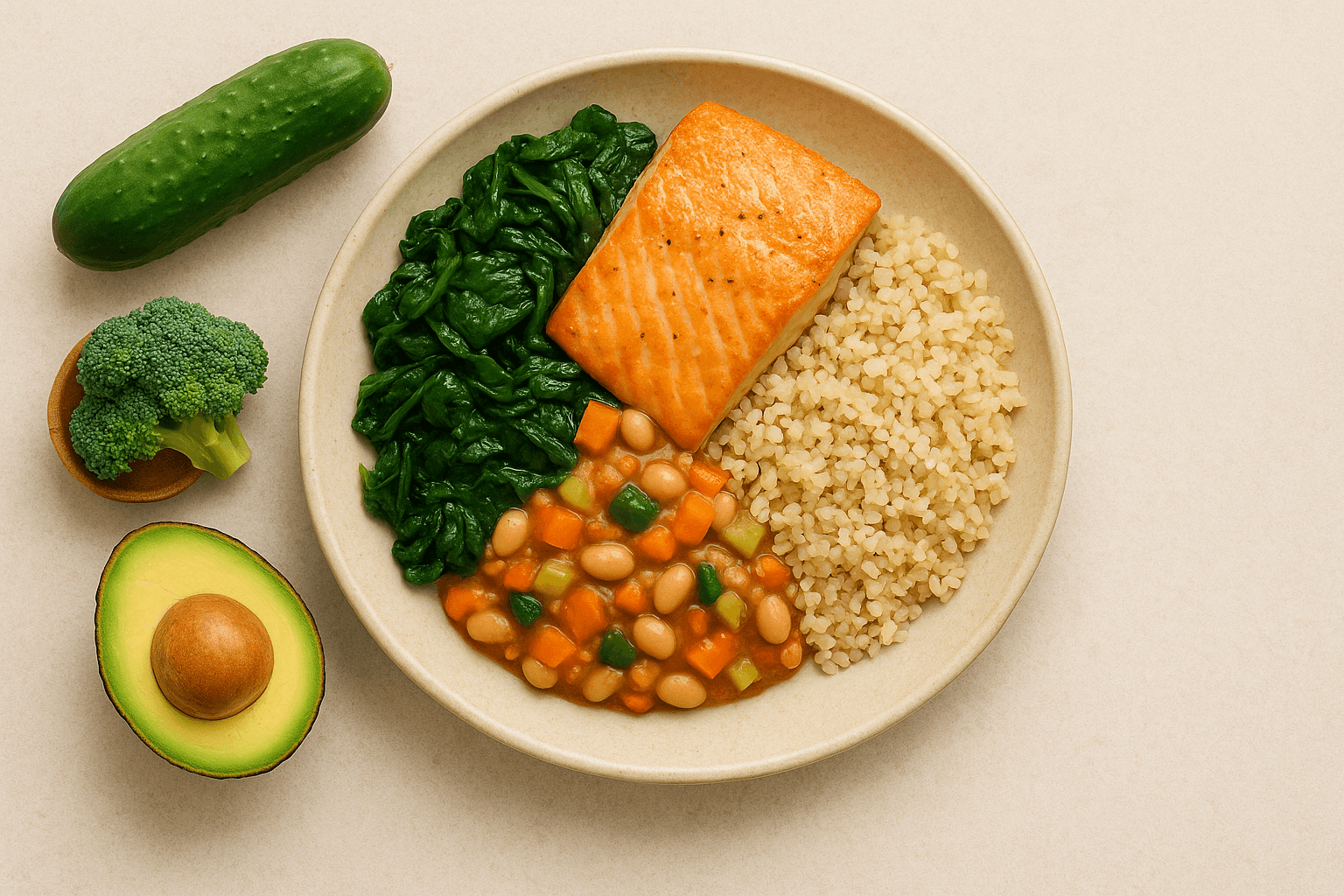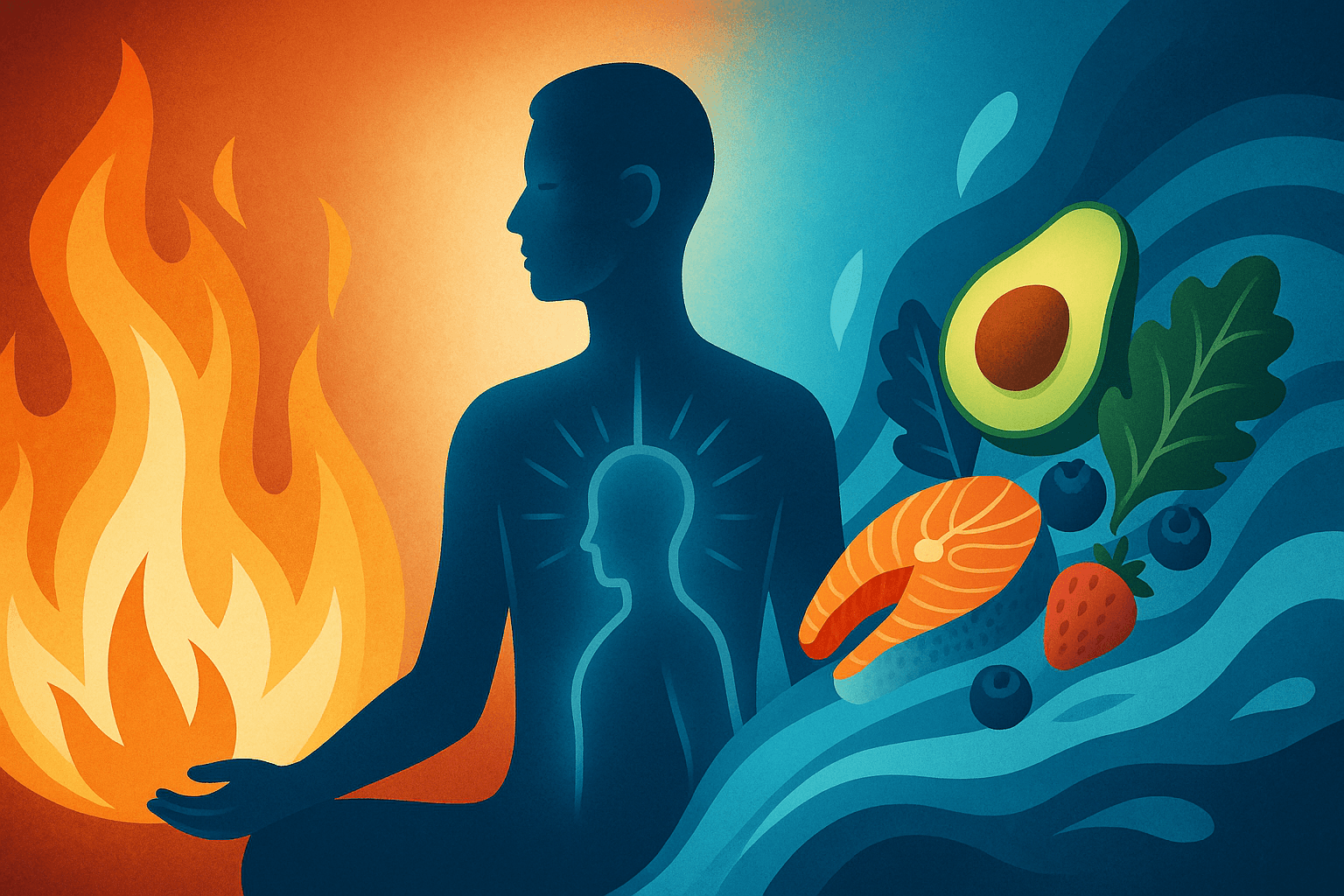THE SCIENCE BEHIND BALANCED NUTRITION: BUILDING BLOCKS FOR OPTIMAL HEALTH
Published on July 18, 2025

Eating well, of course, isn’t a matter of calorie counting or fad diets; it’s a matter of grasping the science of sound nutrition and the ways that food nourishes the body down to the cellular level. In this article, I offer fundamental tenets for healthy eating that are based on evidence and clinical experience to help you move toward creating a nourishing, sustainable and pleasurable dietary foundation for vitality, longevity, and chronic disease risk reduction.
MACRONUTRIENT HARMONY: WHY BALANCE MATTERS
The human organism needs a strictly defined spectrum of carbohydrates, proteins, and fats, which assume specific and fundamental physiological tasks to ensure its overall homeostasis and metabolic task carrying out. Carbohydrates are the body’s primary source of fuel, particularly for the brain and muscles, but the type of carbohydrates consumed can have a major impact on health. Slow digesting complex carbs found in whole grains, legumes, fruits and veggies provide a steady release of glucose that assists in appetite control and sustains steady energy levels, as well as contains dietary fiber to help promote healthy digestion and gut flora. Processed carbs and added sugar, however, are digested quickly, producing rapid spikes in blood sugar and insulin that, over time, contribute to insulin resistance and weight gain.
Proteins are the building blocks of your body, necessary for the repair and maintenance of tissues and to make enzymes, hormones, and immune molecules. By including a variety of protein sources (both animal sources, such as fish, poultry, eggs, and plant sources, such as legumes, nuts, seeds), you can be sure you will receive all the essential amino acids in a healthy-balanced diet. Additionally, protein provides satiety and assists in appetite control and weight loss.
Healthy fats—such as monounsaturated and polyunsaturated fats, specifically omega-3 fatty acids in fatty fish, flaxseeds, walnuts, and olive oil—are essential for brain health, hormone production, building cell membranes, and lowering inflammation levels throughout the body. They also aid in the absorption of fat-soluble vitamins (A, D, E, and K) and offer a calorie-dense, satiating, and blood sugar-stabilizing energy source.
Science has consistently shown diets that maintain macro-metabolic balance increase “metabolic flexibility” — how well the body can switch back and forth between burning carbohydrates and fats for fuel — which is crucial to body weight management, blood sugar control and lowering risk for chronic disease.
MICRONUTRIENTS: SMALL BUT MIGHTY
Though needed in small amounts, vitamins and minerals are essential to hundreds of bodily functions and chemical processes. Vitamins C and E (as well as other antioxidant vitamins) help protect your cells and DNA from "free radicals"—molecules that wreak havoc on the body by damaging genetic material in cells and are tied to aging and to causing disease. Essential minerals such as magnesium, zinc, calcium and potassium aid energy metabolism, nerve transmission, muscle contractions and fluid balance.
Eating foods of many colors provides the full palette of such micronutrients. For instance, dark leafy greens contain folate and vitamin K, citrus fruits contribute vitamin C, and nuts and seeds contain magnesium and selenium. Sufficient micronutrient consumption is vital to cell repair, immune function, cognitive processing, and detoxifying processes.
FIBER AND GUT HEALTH
FIBRE is fundamental for digestion and general well-being. Soluble fiber dissolves in water to become a gel that retards digestion, blunts the postprandial rise in blood sugar and lowers LDL cholesterol. Insoluble fibre: This fibre creates bulk in the stool for good bowel movements that are regular. Both types of fiber feed beneficial gut bacteria, which produce short-chain fatty acids like butyrate that tamp down inflammation and maintain the integrity of the gut lining.
In recent years, studies have also shown that the gut microbiome affects metabolic health, immunity, mood, even neurological function. Foods considered to feed a good microbiome such as legumes, whole grains, fruits, and vegetables are high in fiber coming from many sources and this fiber diversity may prevent obesity, diabetes and inflammatory disease.
HYDRATION AND ITS ROLE
Water-facilitated The predominant medium for numerous physiologic activities is water. Digestion, transporting nutrients, keeping our temperature stable, and the kidneys being able to filter toxins depends heavily on being properly hydrated. We know that even a little dehydration can affect your brain, making it harder to focus or concentrate, or you may feel grumpy or moody.
In general, it is suggested that we get about 2 to 3 liters of fluids per day, primarily from water and herbal teas. "You want to avoid dehydration and metabolic derangements, so you don't want to drink sodas and drink lots of caffeine in the coffee."
EFFECTS OF FOOD QUALITY AND PROCESSING
The nutritional value and health implications of foods are extremely dependent on the degree of processing. Whole, unrefined foods preserve their natural proportion of vitamins, minerals, antioxidants and fiber which can help promote fullness and metabolic health. Ultra-processed foods, on the other hand, are filled with added sugars and bad fats, in addition to sodium, and artificial colors and preservatives – all of them encourage inflammation and the problems that come with it – weight gain and the development of chronic disease.
Long gone are the days of chemically-infested pesticide sprayed produce; we now have access to fresh, seasonal, local fruits and vegetables whose nutrient impact is richer while our environment is sustained. Preparation of home-cooked meals prepared from fresh, whole foods, retains the maximum nutrient gold is favorable to mindful eating.
PRACTICAL APPROACHES TO BALANCED EATING
Focus on whole, plant-based foods with lean proteins and healthy fats in moderation.
Be sure to include variety to help include all of the important nutrients and to avoid boredom.
Adopt mindful eating by paying attention to hunger and fullness clues so you consume until you’re full to avoid overeating.
Limit intake of added sugars, refined grains, and heavily processed foods.
Plan and fix a meal in advance to skip those spontaneous (and maybe not-so-healthy) dishes.
NEW INSIGHTS: CHRONONUTRITION AND MEAL TIMING
More evidence that the timing of meals can aid in maintaining metabolic health Recent findings in chrononutrition indicate that the timing of meal intake can affect metabolic health through coordinating food consumption with the body's circadian clocks. Eating a greater proportion of calories toward the beginning of the day has been shown, for example, to enhance insulin sensitivity, moderate blood sugar levels, and help with weight control. This nascent area of research suggests that it’s not just what we eat, but when we eat it, that matters in terms of our overall health.
PHYTOCHEMICALS AND ANTIOXIDANTS I.
In addition to macronutrients and micronutrients, phytochemicals, bioactive components present in plants, are also important in maintaining health and preventing diseases. Polyphenols, flavonoids, carotenoids and many other antioxidants when consume from various colored fruits, herbs, spices and vegetables fight oxidative stress and other inflammations at the cellular level.
For instance, compounds such as resveratrol in grapes, curcumin in turmeric and quercetin in apples have been investigated for their anti-inflammatory and cardioprotective potential. Ingesting a diverse range of phytochemical-containing foods on a regular basis helps to maintain a well-functioning immune system and attenuates risk of chronic diseases and premature aging.
PSYCHOSOCIAL DIMENSIONS OF HEALTHY EATING
Healthy eating is not only about nutrients; it is also about the food relationship, cultural and social context. (Mindful eating habits, in which you savor the sensory experience of eating, listen to hunger and fullness cues and express gratitude, are associated with more pleasure and less overeating.
Mealtime social linkages contribute to emotional wellness and support maintenance of healthy habits. The tradition of eating and cooking together as a family or with friends encourages positive attitudes toward nutrition and health for life.
ENVIRONMENTAL AND ETHICAL CONSIDERATIONS
Food has a personal health and environmental impact, food choices do matter. Choosing food that is seasonal, locally sources and produced often, is a great way to reduce carbon footprint and to support biodiversity. Diets that emphasize legumes, nuts, seeds and vegetables are generally more environmentally sustainable than those that are heavy in red meat.
Tackling waste with meal planning, storage and using leftovers in a creative way are not just kind to the environment – they are also really valuable for the utilisation of resources in a smart way.
FINAL THOUGHTS
Science-Based Nutrition Our understanding of the body's chemistry and the effects of food on our health have made scientific strides and are redefining nutrition for the 21st century. Principles of nutrient synergy, macronutrient balance, fiber diversity, phytochemical richness, and mindful eating - with consideration of timing and, of course, environmental impact - democratize your ability to build a sustainable, resilient, enjoyable way of eating that fuels every dimension of your life.
Little, regular changes in our diet add up and accumulate over time, shaping our well-being and lifestyle. At the end of the day, the healthiest diet is the one that’s good for you, as an individual, based on your individual needs, preferences and values — a diet you can happily maintain, long-term.








